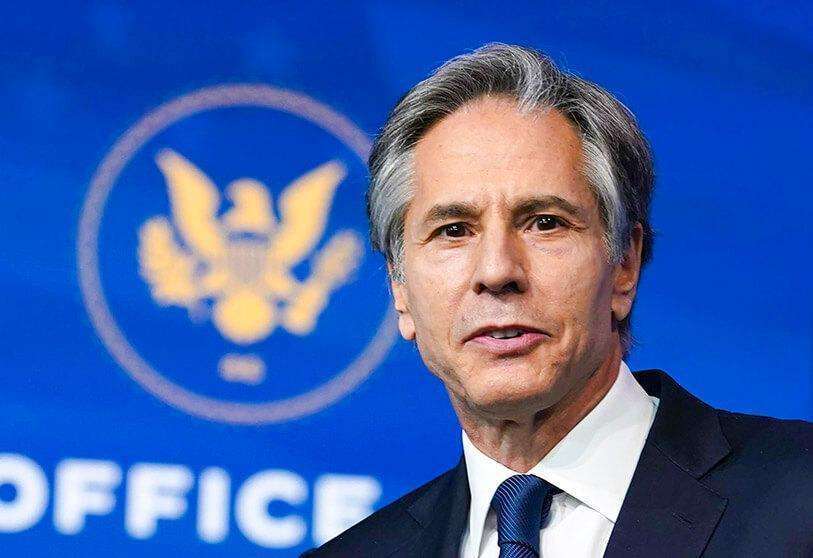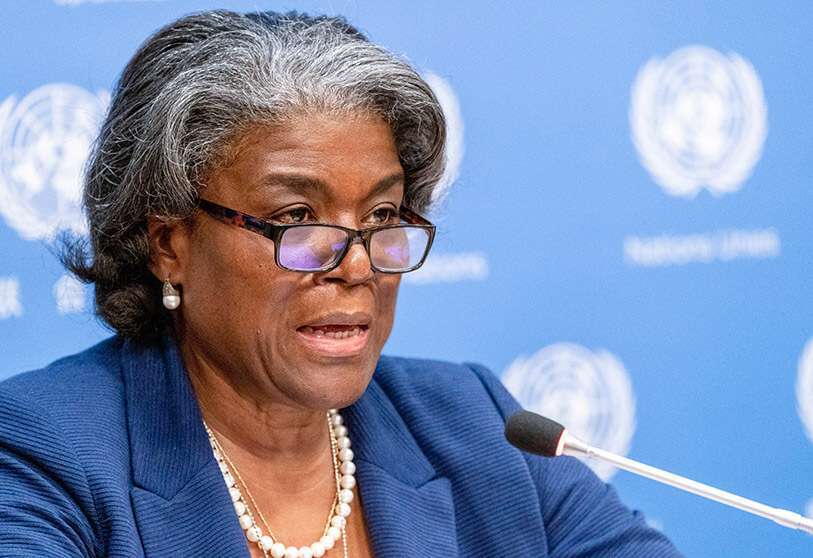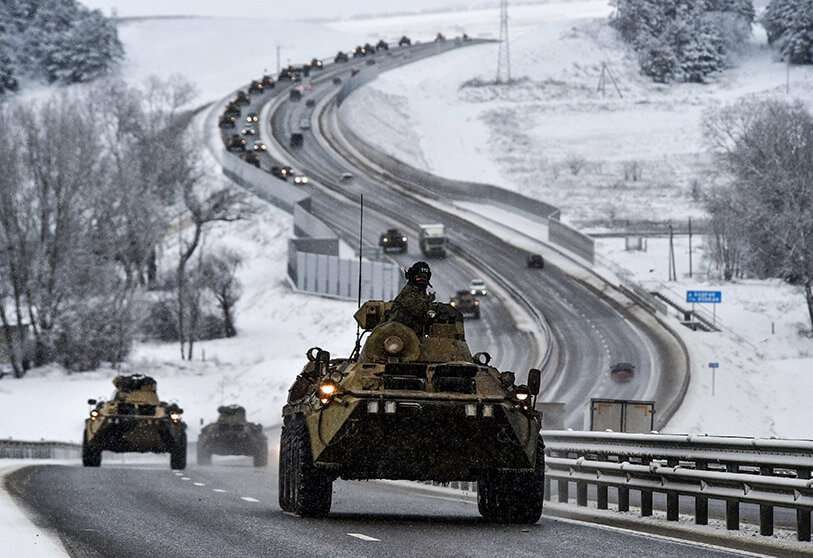Blinken warns Security Council that Russia will invade Ukraine "in the coming days"

The escalation of tensions on the border between Russia and Ukraine seems to be unchecked. Two months on, talks between the Kremlin and Western governments have failed to defuse the situation or mitigate the mistrust between the two sides. In this scenario, the US Secretary of State, Antony Blinken, has travelled today to the United Nations Security Council meeting, with the aim of intervening directly in the negotiations on the "grave situation" and warning of the imminent invasion of Russian troops in Ukraine.
This meeting now adds to the long list of meetings held since Russia annexed Crimea in 2014, all of which were aimed at managing the Ukrainian crisis. However, the right of veto by Russian representatives has prevented any action at all of them.

However, despite the fact that this latest Council meeting was chaired by Russian Deputy Foreign Minister Sergei Verchinin, who has been in charge of the Council this month, and that the meeting had been planned for some time, the expulsion of the number two at the US embassy in Moscow, Bart Gorman, and the breakdown of the ceasefire in the east of the country have precipitated a change in the US official's agenda. Ahead of his trip to the German city of Munich tomorrow, Blinken has travelled to New York to address the Security Council.
"After a series of conversations with the White House, the National Security Council and the State Department, I asked Secretary Blinken to speak directly to the UN Security Council about the grave situation in Ukraine," said Linda Thomas-Greenfield, the US ambassador to the UN, in a telephone interview with the media.

During his remarks, Blinken denounced the possibility of Moscow invading Ukraine "in the coming days". In line with Greenfield's statements - "the evidence on the ground shows that Russia is moving towards an imminent invasion" - the Secretary expressed his conviction that the Kremlin is taking every step "in the direction of war".
These suspicions gain momentum with the breakdown of the ceasefire in the eastern Lugansk district of the Donbas region, where this morning an exchange of accusations of shellfire between pro-Russian separatists and Ukrainian government forces was reported. "We have seen the reports about the bombers, and it is really worrying. We've said before that the Russians could do something like this to justify a military conflict," said US Secretary of Defense Lloyd Austin after learning of the incidents. In the same vein, NATO Secretary General Jens Stoltenberg said the alliance is "concerned" that Moscow may be looking for a pretext for conflict.
"We don't know exactly what form it [the pretext for the attack] will take. It could be a fabricated terrorist bombing inside Russia. A fabricated discovery of a mass grave, a drone-mounted attack on civilians, or a fake, even real, attack using chemical weapons," Blinken said.

However, echoing Lloyd Austin's remarks at NATO headquarters, the US Secretary of State stressed that he had no intention of starting a war, but rather of preventing one. In this sense, Blinken made public his proposal to hold a meeting with his Russian counterpart, Sergey Lavrov, next week in order to "resolve the crisis without conflict". The US official said that the letter has already been sent to the Kremlin, and hopes that the future meeting will pave the way for a summit between the two governments, as well as a series of meetings with NATO and the Organisation for Security and Cooperation in Europe (OSCE).
For their part, Russian officials have argued that Washington's warnings of an invasion are part of a "coordinated media attack" on Moscow. Former diplomat Yuri Ushakov accused the White House of "inflating hysteria", while Dmitry Peskov, the Kremlin's press secretary and spokesman, called all US statements "empty and unfounded".
Meanwhile, Antony Blinken used his speech to the Security Council to reject these claims: "We have seen it with our own eyes for months, and what Russia has been doing is delegitimising our warnings as melodrama and nonsense as they amass troops on the Ukrainian border and build up their capabilities for a possible invasion.

Within the negotiations, the role of the Minsk Agreements is key. Both sides resort to accusations of violation of this treaty by the other side, since these pacts, signed in 2015 under the auspices of France and Germany (the Normandy Quartet), committed Ukraine to reforming the Constitution and granting broad autonomy to the regions of Donetsk and Lugansk - guaranteeing the holding of local elections - as long as Russia withdrew its weapons and troops from Ukrainian territory.
Now, with the Russian lower house of parliament's request for recognition of Lugansk and Donetsk sovereignty on Tuesday, the Minsk agreements could be more at risk than ever. Western diplomats such as the EU's High Representative for Foreign Affairs and Security Policy, Josep Borrell, have called on Putin to reject this request as "a clear violation of the agreements".
Americas Coordinator: José Antonio Sierra.










